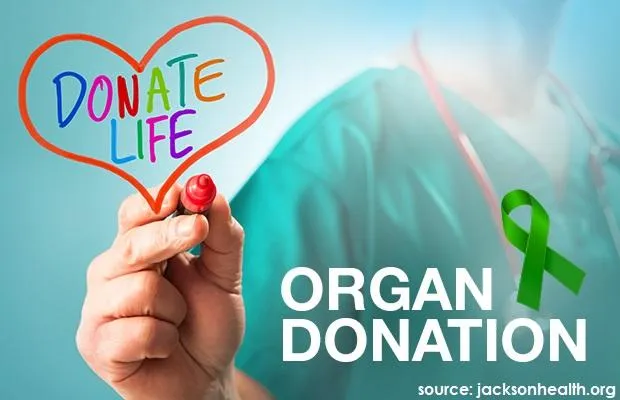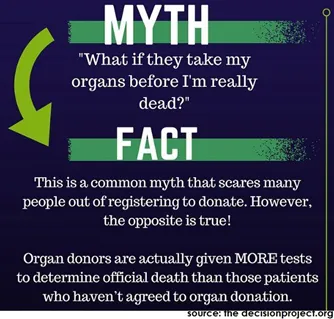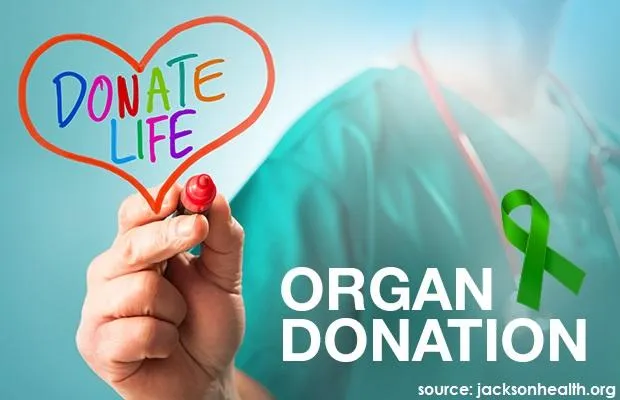It is estimated that nearly half a million Indians suffer from end-stage organ failure every year. However, less than 5000 kidney transplants are performed per year, despite demand of over 200,000.
Similarly, only 1500 liver transplants are performed in India per year. However, over 100,000 people die from end-stage liver disease in India. Most of these liver diseases are caused by preventable conditions such as hepatitis B and C.
The annual requirement for hearts is estimated to be about 50,000, and for lungs, it is estimated to be about 20,000. While most organ transplants are conducted after brain death, most of the programs depend on living donors.
Majority of the transplants ( Liver and Kidney) happening in India are Living Donors. It exposes poor population to the risk of bribery and other malicious attempts.

So, the need for organ donation after brain death (BD) has become very important. The rate of organ donation has risen tenfold in the last five years, reaching 0.86 per million people.
More and more families are going forward to donate their loved one’s organs. After BD, over 900 people donated over 2800 organs in 2017. Everyone should commit to donating their organs and contribute to the saving of lives.
When most people consider pledging for organ donation, some questions arise in their minds. Here are ten things that one must know about organ donation:
Organ Donation is legal in India
The Transplantation of Human Organs Act 1994 of India first provided regulations for the removal, storage, and transplantation of human organs for treatment purposes. The Act was amended in 2011 and put into effect by the release of Rules in 2014, which included numerous amendments to declaring brain death and organ retrieval.
All adults can pledge to donate organs
Someone over the age of 18 can make an organ donation pledge. Organ and tissue donation has no age restrictions. The transplant teams assess the suitability of each organ and tissue at the time of brain death.
Brain death is death
In patients with brain death, the brain dies due to stroke, head injury, or brain tumor, but the heart continues to beat for a few hours or days. So, the essential blood flow to the organs is preserved. The effects of brain death are permanent. When a person is announced brain dead, the death form is filled out even if the heart is still beating. It is a legal for of death.
Treatment quality is unaffected by organ donation

Only after the patient is brain dead, the doctors discuss organ donation with the patient’s family. The treating teams have a mandate to make every attempt to save lives and have no role to play in organ donation.
Number of organs and tissues that can be donated
By donating the heart, lungs, liver, kidneys, pancreas, and small bowel, a single non-living beating-heart donor will save eight lives. Several tissues, such as the cornea, heart valves, eardrums, ear bones, tendons, and skin, can also be donated after the heart stops beating.
Brain death is not difficult or costly to diagnose
Bedside tests conducted by a team of four doctors and repeated after 6 hours are used to diagnose brain death in India. There are no costly tests needed.
The cost of maintaining the cadaver, retrieval of organs or tissues, transportation, and preservation, is not borne by the donor family. These costs are borne by the recipient, institution, government, or non-governmental organization as decided by the respective State Government.
No pain or mutilation
A brain-dead person is dead and does not feel pain. Organs are removed in the operating room with the utmost care and dignity by a team of specially qualified surgeons
No legal standing for the donor card
A person can make organ donation pledges through government, non-governmental, and private organizations. The pledge is not limited to a single nation, state, or hospital. The donor is on a ventilator at the time of brain death, and the hospital staff asks the family about organ donation. Although pledging is not required for organ donation, it does assist the family in making the best decision possible. As a result, it is important that one tells their family about the decision to become an organ donor before they sign up.
Organs are given to those who need them the most
The National Organ and Tissue Transplant Organization (NOTTO) manages organ donation. The organization is built on a straightforward framework that guarantees that the sickest patients get transplants first.
India is poised to enter a new era of deceased organ donation with experience, infrastructure, funding, and increased knowledge. Finally, it comes down to trusting the doctor and the medical system and honesty in the organ allocation process.

